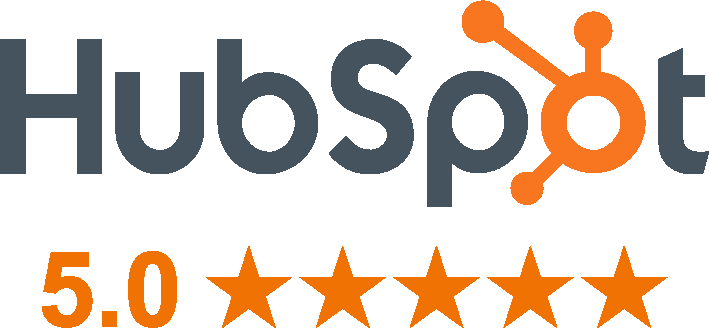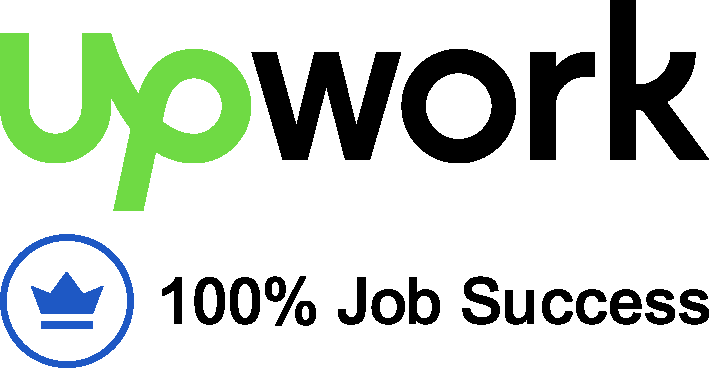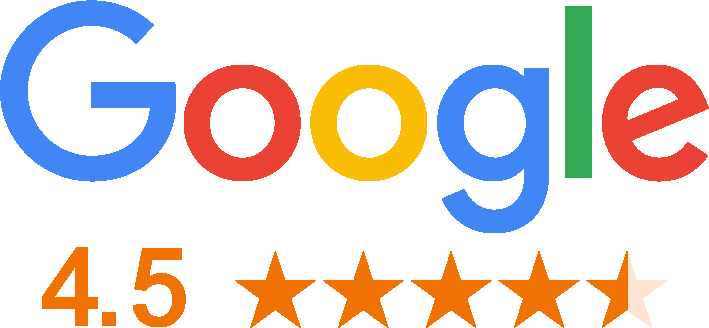- Home
- Website Performance Optimization
Website Performance Optimization
Transform your website into a high-performance powerhouse.
In the digital era, speed is a need rather than a luxury. A slow website could result in fewer visits, conversions, and possibly worse search engine results. Our areas of expertise at Inboundsys are maximizing your website for meaningful outcomes, perfect user experiences, and lightning-fast speeds.
Whether your website has slow load times, high bounce rates, or poor mobile performance, we're here to help. Our proven strategies guarantee that your website improves not only in speed but also in intelligence, strength, and ability to meet the demands of both your audience and search engines.



Why does website performance optimization matter?
Did you know that 53% of users abandon a website that takes more than 3 seconds to load? Speed is no longer a choice; it's a critical factor.
When your website is optimized for performance, you can:
- Improve User Experience: Keep visitors interested and satisfied.
- Boost SEO Rankings: Google rewards quicker websites with increased visibility.
- Increase Conversions: A smoother experience leads to more sales and inquiries.
- Reduced costs: Optimized websites require fewer resources and are easier to maintain.
How does Inboundsys enhance website performance?
At Inboundsys, we strive to enhance the speed of your website. Here's a complete overview of our entire process:
Performance auditing
- Conducting in-depth examinations using technologies such as Google PageSpeed Insights, GTmetrix, Lighthouse, and Pingdom.
- Evaluating Core Web Vitals (Largest Contentful Paint, First Input Delay, and Total Layout Shift).
- Evaluating server performance, network latency, and third-party script influence.
Code optimization
- To decrease file size and HTTP requests, minify and combine HTML, CSS, and JavaScript files.
- Lazy script loading and the removal of render-blocking resources.
- Implementing asynchronous and postponed loading for non-critical assets.
Image optimization
- Image compression can be automated using software such as TinyPNG and ImageOptim.
- Implementing responsive image formats (such as WebP and AVIF).
- Lazy loading for photos and videos can improve the speed of content displayed above the fold.
Server optimization
- Setting up Content Delivery Networks (CDNs) like Cloudflare and Akamai to deliver content internationally.
- HTTP/3 is being implemented to improve connection speeds and security.
- Utilizing server-side caching and moving to high-performance hosting solutions.
Database optimization
- Optimize database queries, indexing, and table structure.
- Clearing out unnecessary entries, transients, and logs.
- Database caching techniques such as Redis or Memcached can be used to accelerate data retrieval.
Mobile optimization
- Ensuring responsive design for consistent performance across all devices.
- Viewport meta tags are being included to allow for mobile scaling.
- Making mobile pages lighter by optimizing CSS and JavaScript for tiny screens.
Caching strategies
- Browser caching stores frequently used assets locally on users' devices.
- Server-side caching enables faster delivery of pre-rendered pages.
- Advanced caching technologies like object caching and opcode caching are used.
Third-party script management
- Evaluating and optimizing third-party tools and widgets (chat plugins and analytics scripts).
- Delaying non-critical script loading till the user interacts.
- Reducing reliance on external libraries by utilizing lightweight alternatives.
Security enhancements
- Enabling HTTPS ensures faster and more secure data transmission.
- Using HTTP/2 or HTTP/3 for parallelized data requests.
- Mitigating potential slowdowns caused by security weaknesses such as DDoS assaults.
Content delivery optimization
- Compressing text-based assets with Gzip or Brotli.
- Preloading essential assets such as fonts, CSS, and hero pictures.
- To reduce lookup times, use DNS prefetching and preconnecting.
Advanced optimization techniques
- Use server-side rendering (SSR) or static site generation (SSG).
- Using progressive web app (PWA) technology to enable faster offline functionality.
- Using crucial rendering path optimization to prioritize critical resources.
Ongoing monitoring and updates
- Create real-time performance monitoring dashboards for continuous analysis.
- Proactively addressing performance issues caused by plugin upgrades, CMS modifications, or new technologies.
- Periodic re-optimization to adapt to changing SEO and performance criteria.
What results can you expect after optimization?
Following our optimizing services, you should expect:
- Desktop and mobile load times are up to 50% faster.
- Enhanced Core Web Vitals will help to improve SEO results.
- Improved user experience; 20–40% more conversions.
- Reduced server expenses and increased website dependability.
Why choose Inboundsys?
We have been the go-to specialists in website optimization for over 12 years. Here's what separates us:
Proven Experience
With experience in platforms such as WordPress, HubSpot, Shopify, Webflow, and bespoke builds, we've seen and solved everything.
Tailored Solutions
We do not believe in cookie-cutter solutions. Your company is unique, as is our strategy.
Transparent Reporting
Get a clear picture of your situation with precise before-and-after performance reports.
Ongoing Support
Optimization is not a one-time operation. We ensure your website remains fast, secure, and efficient.
Honoring the Brands That Trust Us















Trusted by Businesses Worldwide
Excellent team and support from Inboundsys
We started our project to migrate from OLD CRM where we had 5 year data. Then we also wanted to revamp the entire Sales process what we had in FreshaSales. From Day 1 Inboundsys team has been very confident about the migration and implementation. I was really impressed with the kind of Knowledge they carry as a team. I found them available for all our queries during and post-implementation as well. With the kind of knowledge and commitment they showed, we could complete our implementation in time and satisfaction. Thanks, Inboundsys team, for all their assistance, and wish them all the best for their future endeavour. :)
Services provided - CRM Implementation and CRM Migration
Piyush Bhamare
Information Technology Services
Fast, Efficient and Overall Fantastic Service
Working with Inboundsys was an absolute pleasure. They understood the project scope immediately, and when any issues popped up, they would send us an analysis of the problems and suggested solutions; that alone was absolute gold compared to many other partners we work with. They were also swift in execution, and honestly, they exceeded all our expectations. I will partner with them again in a heartbeat.
Services provided - Website Development and Website Migration
Ghazi Jeiroudi
Marketing Advertising
Excellent team and support from Inboundsys
INBOUNDSYS have been and continue to be a great help to us while we split out website into two functional yet different sub-pages. They did the works quickly and we have been very happy with the outcomes.
Services provided - Website Development and Website Migration
Lena Kimenkowski
Design
Converted Wix Website to HubSpot
INBOUNDSYS quickly and accurately converted our Wix website over to HubSpot. The team was very responsive even though we live in opposite time zones! We are very happy with the work!
Services provided - Website Development and Website Design
Kateri Gabriele
Professional Training Coaching
Great people to work with
I've built approx 1000 websites for my businesses and for my client's businesses. Inbound are in the top 5 companies I have worked with. They exceeded my expectations in a number of ways . They took the time to read my brief carefully and ask a lot of questions before they got started. . They completed the dev 1.5 weeks ahead of schedule. . They were able to build applications and templates from scratch The result is a site that will return value to our company for the next 5 years. I hope they showcase our website and win more business.
Services provided - Website Development and Website Design
Anthony Coundouris
Anthony Coundouris
Excellent service - Highly Recommended
I've used Inboundsys lots of times over the past few years and each time, the level of service and the end product is excellent. Whenever I need a landing page building, the team understand the task and work efficiently to create the page from my design.
Services provided - HubSpot Website Development and Website Design
Daniel Greenhalgh
Computer Software
Knowledgeable and reliable
I have been working with Inboundsys for 3 years now and have been very happy with our working relationship. Project Managers are very responsive, reliable and know all the ins and outs of our business - which is especially helpful for me as a newcomer. I highly recommend Inboundsys - thank you, team!
Services provided - HubSpot Automation, HubSpot Email Marketing, and custom API Integrations with HubSpot
Chelsea Daniell
Medical Devices
Great Customer Service
I have worked with the team at Inbound for over a year now and they have been great partners. Project Managers go out of their way to keep my team moving in the right direction with HubSpot.
Services provided - HubSpot CRM Implementation and HubSpot Automation
Todd Paton
Marketing & Advertising
Supportive and Reliable
Working with the Inboundsys team is nothing but great! The team has shown endless support for our campaigns and requirements, especially when there was a crunch in timeline most of the times. They are able to deliver the campaigns with good understanding of the clients' needs. Kudos to Inboundsys Team.
Services provided - HubSpot Email Marketing and full Inbound Marketing Services
Shermaine Foo
Medical Devices
Proactive and quick!
All of the projects we handed the Inboundsys team yielded the desired outcome. They've proactively offered suggestions with all the feasible options and solutions. In the event of a problem, the Inboundsys team has been very supportive and prompt in resolving those problems in real-time. They have been fantastic for website development for both HubSpot CMS websites and Inbound Marketing Services.
Services provided - HubSpot Website Development, Search Engine Optimization, and Website Re-design.
Sourabh Choudhary
Information Technology Services
Please book your free 30-minute consultation with our experts today.
Frequently Asked Questions (FAQs) about Website Performance Optimization Services
How long does it take to optimize a website?
The timeline is determined by your website's size and degree of complexity. However, we often produce apparent improvements within 7-14 days, assuring measurable outcomes while maintaining your website's operation.
Is website performance optimization a one-time service?
Not necessarily. While we deliver quick results, continuing optimization ensures that your website keeps up with evolving technology, SEO requirements, and user expectations. We also provide affordable monthly maintenance plans to ensure constant performance.
Can website performance optimization help my SEO rankings?
Absolutely! Page speed and user experience are essential considerations in Google's ranking algorithm. By increasing your website's performance, we may improve your Core Web Vitals metrics, directly impacting your search engine rankings.
Can optimizing the performance of my website help me save money on hosting?
Yes! An efficient website consumes fewer server resources, lowering hosting costs and increasing stability, particularly during traffic spikes.
Do I need to revamp my website to improve its performance?
Not necessarily. In most circumstances, we can optimize your existing website without changing the design. However, if obsolete design components are causing performance problems, we may suggest minor changes.
What happens if my website's performance difficulties return?
We achieve long-term improvements by following best practices and offering ongoing support. With our maintenance plans, we proactively monitor your site to address possible issues before they impact performance.
What makes a website load slowly?
Several things can slow down a website, such as:
- Large, uncompressed images.
- Inefficient or outdated code.
- Poor server performance or hosting issues.
- Too many third-party scripts (e.g., ads, analytics tools).
- Lack of caching and content delivery network (CDN) usage.
At Inboundsys, we discover and repair these issues to guarantee your website performs optimally.
What's the difference between website speed and performance?
Website speed relates to how rapidly a webpage loads, whereas website performance encompasses responsiveness, stability, and user experience. At Inboundsys, we optimize both to provide a quicker, more efficient, and dependable website.
How can I assess my website's current performance?
To assess your website's performance, utilize tools such as Google PageSpeed Insights, GTmetrix, or Pingdom. However, analyzing the findings might be difficult—this is where we come in. We'll conduct a free performance audit and identify specific areas for improvement.
Can you improve my website if the website is hosted on HubSpot?
Yes, we work with a variety of platforms, including:
- WordPress
- HubSpot CMS
- Shopify
- Magento
- Webflow
- Custom-built websites
Regardless of the platform, we personalize our approach to your website's specific demands.
Can you optimize massive and complicated websites?
We specialize in optimizing websites, from tiny company sites to massive enterprise-level websites with hundreds of pages. Our team tackles complex tasks such as custom coding, third-party integrations, and database administration.
How frequently should I improve my website?
Enhancing website performance is a continuous process. Changes such as adding new material, plugins, or third-party tools can all impact performance. We recommend a quarterly performance check to ensure your site is optimized and working smoothly.
How can I evaluate the outcomes of performance optimization?
We utilize Google PageSpeed Insights, GTmetrix, and Lighthouse to provide a complete before-and-after analysis. You will see significant improvements in load times, Core Web Vitals, and overall website performance indicators.
Will optimizing my website affect its design or functionality?
No, your website's design and functionality will remain intact. At Inboundsys, we ensure that all optimizations are seamlessly implemented without disrupting your website's user experience or core features.
Will my website go down throughout the optimization process?
No, we conduct most optimizations in a staging environment to keep your live website accessible. We will effortlessly implement the adjustments once everything has been tested and approved.
How safe is my website during optimization?
Security is our primary priority. We apply industry best practices, such as HTTPS compliance and vulnerability prevention, to safeguard your website's security throughout the process.
How much does website performance improvement cost?
Costs vary depending on the size of your website, platform, and current performance. Contact us for a free performance audit and a customized price based on your requirements.
How does website performance affect my conversion rate?
A sluggish website can substantially influence conversion rates. According to research, even a one-second delay in load time might result in a 7% decline in conversions. By boosting website speed, consumers benefit from quicker page loads, improved usability, and a more seamless checkout process, increasing their propensity to convert.
Does improving my website increase user engagement?
An optimized website increases user engagement by providing a smooth experience. Faster load speeds minimize annoyance, enhance navigation, and keep visitors on your site longer, resulting in more page views and interaction.
Does optimizing a website's speed increase its security?
SIndirectly, yes. Many efficiency enhancements, such as installing HTTPS, eliminating vulnerabilities in obsolete plugins, and deploying secure hosting, also improve website security.
How does website speed improvement affect user retention?
Websites that are fast and responsive keep users pleased. A sluggish site leads to dissatisfaction and desertion, but an optimized site encourages users to remain longer, explore more pages, and return in the future.
How do Core Web Vitals relate to website optimization?
Google's Core Web Vitals is a collection of metrics that assess critical aspects of user experience:
- Largest Contentful Paint (LCP): Loading performance.
- First Input Delay (FID): Interactivity.
- Cumulative Layout Shift (CLS): Visual stability.
We increase these variables to help your site rank higher and provide an excellent user experience.
How do you approach eCommerce website optimization?
For eCommerce websites:
- Optimize product photos to ensure quicker loading.
- Streamline checkout procedures for faster conversions.
- Increase server performance to accommodate heavy load.
- Reduce the number of third-party scripts that may cause transaction delays.
This guarantees that your clients have a speedy and dependable buying experience.
How can I get started with Inboundsys?
Getting started is easy!
- Request a Free Performance Audit: Contact us, and we'll examine your website's current performance.
- Receive a Custom Plan: We will provide a tailored optimization approach.
- Watch Your Website Transform: Sit back and watch the difference as we enhance performance, user experience, and SEO rankings.
Talk to experts
Don’t you find the required information here or do you have questions to get clarified, or you need further explanation? Please talk to our experts on this topic by directly fixing a meeting with them. Click the button below to schedule a meeting at your convenience.



